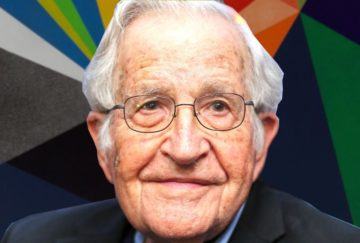 David Barsamian interviews Noam Chomsky in Boston Review:
David Barsamian interviews Noam Chomsky in Boston Review:
DB: One of the topics you discuss in the book [Consequences of Capitalism: Manufacturing Discontent and Resistance, coauthored with Marv Waterstone] is the connection between David Hume, the eighteenth-century Enlightenment philosopher, and Antonio Gramsci, the noted twentieth-century Marxist thinker. What’s that connection?
NC: Hume was a great philosopher. He wrote an important essay, “Of the First Principles of Government” (1741), one of the classic texts on what we now call political philosophy or political science. He opens his study by raising a question. He’s surprised, he says, to see the “easiness” with which people subordinate themselves to power systems. That’s a mystery, because the people themselves really have the power. Why do they subject themselves to masters? The answer, he says, must be consent: the masters succeed in what we now call manufacturing consent. They keep the public in line by their belief that they must subordinate themselves to power systems. And he says this miracle occurs in all societies, no matter how brutal or how free.
Hume was writing in the wake of the first democratic revolution, the English revolution of the mid-seventeenth century, which led to what we call the British constitution—basically, that the king will be subordinate to parliament. Parliament at that time basically meant merchants and manufacturers. Hume’s close friend, Adam Smith, wrote about the consequences of the revolution. In his own famous book The Wealth of Nations (1776), he pointed out that the now sovereign “merchants and manufacturers” are the true “masters of mankind.” They used their power to control the government and to ensure that their own interests are very well taken care of, no matter how “grievous” the effect on the people of England—and even worse, on those who are subject to what he called “the savage injustice of the Europeans,” referring mainly to the British rule in India.
More here.
